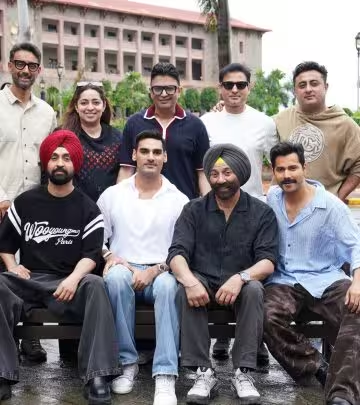Aamir Khan Halts Dangal In Pakistan
Not releasing Dangal after board demanded removal of nation symbols; a bold stand for us!!

Image: Instagram
A renowned decision has emerged from the corridors of film and politics: Aamir Khan, one of Bollywood’s most respected actors, has refused to release his blockbuster Dangal in Pakistan. This action follows demands from Pakistan’s censor board to remove iconic Indian symbols, including the national flag and the national anthem, from the film. The move has sparked a debate among critics, fans, and industry experts alike over creative integrity and cross-border cultural sensitivities.
A Bold Decision Amid National Pride
Aamir Khan’s stand comes at a time when cinema often ups the ante on political and cultural narratives. Dangal, known for its engaging storyline and international appeal, has become more than just a film—it is a symbol of national pride for many. When the Pakistani censor board insisted on removing references that embody India’s national identity, Khan took a principled stand. In a statement circulating online, the actor made it clear that artistic authenticity and the celebration of his country’s heritage were non-negotiable.
This decision, though affecting the film’s box office potential in Pakistan, underscores a larger context of how films are sometimes forced to conform to political narratives. Rather than altering a work that holds personal and cultural significance, Khan’s refusal to compromise his creative vision has resonated with audiences who value integrity in art.
Impact On Cross-border Film Distribution
The controversy surrounding Dangal’s release in Pakistan is not an isolated case. Historically, many films have navigated the turbulent waters of censorship when crossing international borders. Experts suggest that such censorship demands often stem from longstanding political tensions and the desire by regulatory authorities to control cultural narratives. Dangal’s predicament reflects these larger issues and reveals why modifications to features as emblematic as a national flag or anthem can be seen as diminishing the film’s essence.
Industry insiders have noted that Khan’s decision could set a precedent for future film releases where cultural symbols are at stake. It raises questions about whether films should alter content to cater to foreign regulatory demands or stand firm on artistic and national values. In this instance, the actor appears to have chosen the latter, reinforcing his reputation as a filmmaker who values the integrity of his work over market expansion.
Industry Reaction And Future Prospects
Reactions across social media platforms were swift and passionate. Prominent film publications, including the venerable Filmfare, have weighed in on the issue. In discussions on Filmfare’s official platforms, many commentators praised Khan’s courage in defending his cinematic creation. While some speculated about the financial implications of losing a significant market, the overwhelming sentiment was one of support for a decision based on principle.
This controversy also invites consideration of broader impacts on the film industry. The move has reignited debates over censorship standards and the influence of political mandates on cultural productions. For many in the industry, film is an art form that should not be subject to such political bargaining. As one industry veteran commented on a popular media outlet, preserving the creative narrative is vital, even if it means sacrificing potential revenues from international markets.
A Reflection Of Cinema And National Identity
Dangal is more than a movie; it is a narrative that celebrates the strength, resilience, and spirit of its people. By resisting the alteration of key elements that define India’s identity, Aamir Khan underscores an important message—that art should remain an authentic reflection of its source. This decision, therefore, speaks directly to a larger conversation about cultural representation in cinema and the responsibilities of filmmakers.
While some markets may experience a short-term setback due to political disputes or varying censorship norms, the long-term implications may reinforce the value of authenticity in storytelling. The film’s strong performance in other territories has already underscored its universal appeal. Now, with Khan’s decision becoming a celebrated example of standing by one’s principles, the debate shifts from a mere regulatory issue to an exploration of national identity on a global stage.
Across discussions online, a number of social media influencers and cinephiles have drawn parallels with previous instances where filmmakers faced similar dilemmas. The conversation, fueled by Filmfare’s extensive coverage and analysis, continues to foster a nuanced debate about the intersection of art, politics, and national pride. Even as the industries in both India and Pakistan navigate these complex issues, the core of the matter remains: the unyielding commitment to preserving the sanctity of one’s cultural narrative.
With Dangal’s release in Pakistan now off the table, this episode serves as a reminder of the challenges faced by creative professionals in politically charged environments. It also reiterates that, for many, the true value of cinema lies in its ability to convey an unadulterated story—a story that is as pure and reflective as the national symbols it upholds.
In the end, Aamir Khan’s decision is not just about one film or one market; it is a statement. A statement that the principles of creative freedom and national authenticity remain at the heart of art. As the debate continues to unfold, audiences and critics alike will be watching closely, reflecting on the broader implications for an industry that thrives on the power of storytelling.
Read full bio of Glendon Moss
























